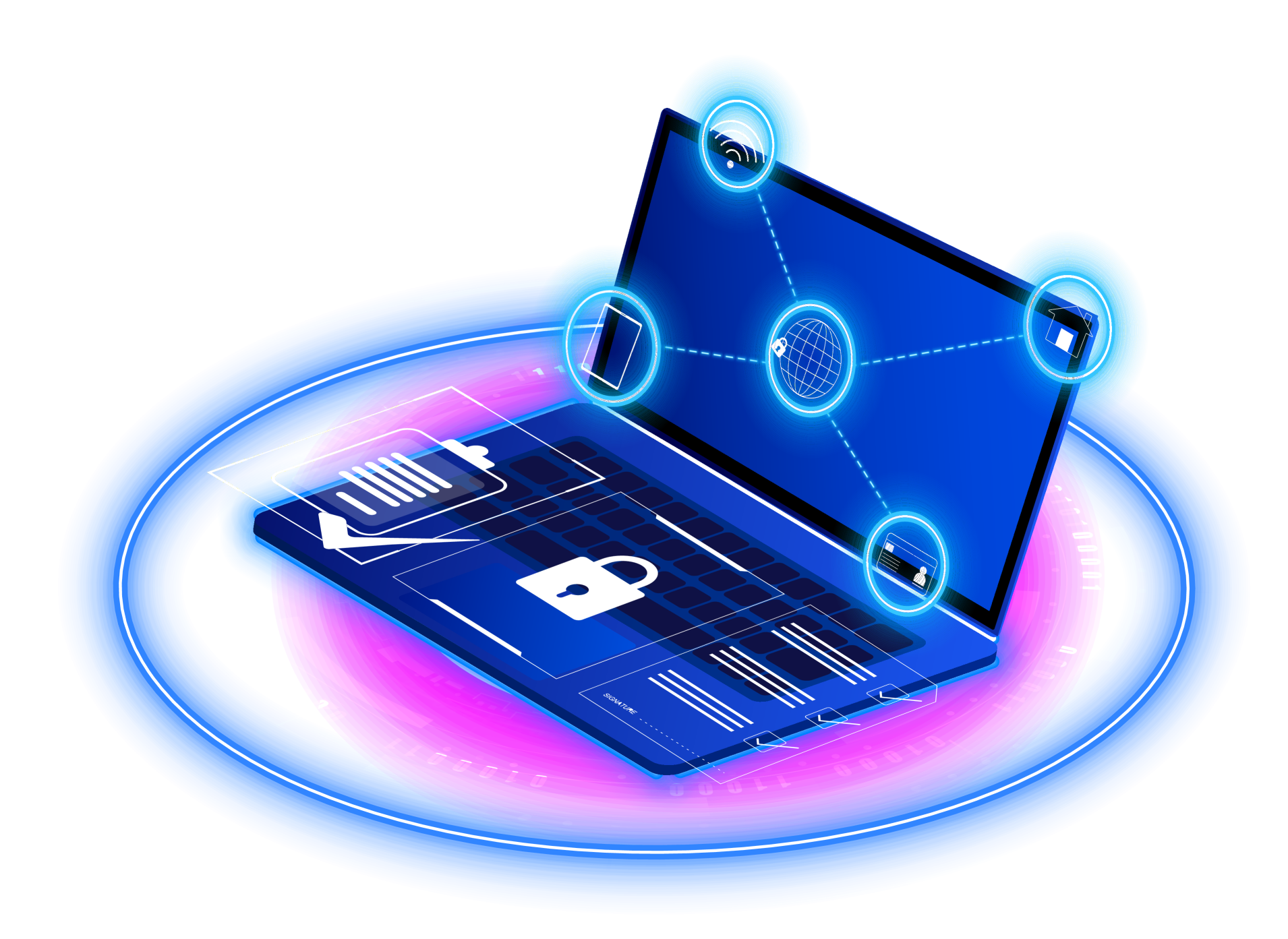Stop. Think. Don't get scammed!
Website scams vulnerability scanner
Get a full website security check for scams, known vulnerabilities and security headers.

You've scanned a website for vulnerabilities, now take the next step!
LATEST UPDATES & SCAM ALERTS
OUR HOTLINE NUMBER
083 123 7226
REPORT A SCAM
Scammed? Reporting your incident helps collect vital information to fight back. Report your incident here.
AM I BEING SCAMMED
Check if you could be a potential target for scammers. Don't become a victim.
HOW TO STAY SAFE
Advanced Fee Scams
This is when scammers trick victims into paying upfront fees, usually for discounted goods or services, with the promise of a prize, large payoff, or a gift that needs to be delivered, or even an inheritance that needs to be distributed.FIND OUT MOREInvestment Scams
Scammers create the illusion of amazing investment opportunities that will help you improve your financial status.FIND OUT MOREPhishing (Emails/Websites)
Phishing emails ask users to click on a link in the email. This link will direct them to a 'spoofed' website (a fake website that very closely resembles the original site) to obtain, verify or update contact details or other confidential information, including financial information.FIND OUT MOREMoney Mules
Fraudsters often trick people into letting them use their bank accounts to receive money from illegal activities - such as fraud, corruption, drug sales, smuggling, or even human trafficking. This tactic, known as money laundering, hides their identity by making transactions look legitimate.FIND OUT MOREOnline Shopping Scam
Online shopping and e-commerce channels have grown tremendously in the last few years as more and more people are turning to it for the convenience it offers in a fast-paced world, as well as the amazing deals you can find online. However, this has also created various opportunities for scammers to gain access to your information or to steal your hard-earned cash.FIND OUT MOREPush Payment Fraud
Push payment fraud is when a person is tricked into authorising a real-time transfer of funds to a scammer impersonating a trusted organisation, like a bank representative for example.FIND OUT MORERemote Access Scams
You are contacted by a scammer posing as a service provider that is known to you. They request 'remote access' to your device to do a security check, update or transaction.FIND OUT MORERomance Scams
As more and more of our lives exist online, it is no surprise that dating is as well. Many people turn to online platforms to find love and connection. There are many wonderful success stories, however, scammers have entered the chat, and they use sophisticated methods to deceive and trick unsuspecting victims who are simply looking for love.FIND OUT MOREVishing (Phone Calls)
Scammers phone individuals posing as a representative from an established organisation like a bank, mobile service provider, insurer, retailer, government body or even the police. This is also known as voice phishing or vishing.FIND OUT MOREAncestry Scams
These scams involve using a person's desire to connect with their heritage or cultural beliefs. Scammers create fake inheritance scenarios or fictitious ancestral demands from a sangoma (traditional healer).FIND OUT MORECommodity Scams
A commodity scam is a sophisticated scheme involving raw materials like agricultural products, precious metals, or energy.FIND OUT MOREEmployment Scams
Employment scams target people who are looking for jobs or employment opportunities. Scammers create fake job posts to lure people in, only to steal their money or personal information.FIND OUT MORESmishing (SMSs)
Smishing is short for 'SMS phishing'. This is when fraudsters send an SMS pretending to be an organisation asking for financial or personal information.FIND OUT MOREImpersonation Scams
Impersonation scams involve criminals pretending to be trusted individuals or representatives from reputable organisations with the aim of stealing your money or personal and confidential information.FIND OUT MOREQuishing (Malicious QR Codes)
Quishing, or QR code phishing, is a scam where criminals use malicious QR codes to trick people into visiting their fake websites, downloading malware onto their devices, sharing personal information or stealing your money.FIND OUT MORESocial Engineering
Social engineering is a tactic used by scammers to influence or deceive a victim in order to steal their personal/ financial information or money, or to gain control over a system. It is about about using your behaviour and what you share with the world against you, and exploits your trust. A common tactic by scammers is to create a fake profile and then befriend potential victims, taking great interest in their social lives. They use this connection to gain access to your life and information.FIND OUT MORECrypto Scams
Scammers create fake online investment trading platforms and investment houses, or crypto exchanges with the intention of stealing your money. They create professional looking marketing material and share posts on social media platforms to entice interest - promising fantastic returns for little investment. Their fake websites or mobile applications are designed to impress with technical layouts that imitate legitimate trading platforms.FIND OUT MOREBusiness Email Compromise
Business Email Compromise (BEC) is a sophisticated tactic where scammers impersonate high-ranking company officials or trusted partners through email or other messaging platforms to trick employees into making payments or sharing private and confidential business information.FIND OUT MORELoan/ Debt Collector Scams
A loan scam is when a criminal deceives an individual into applying for fake loans. The scammers request personal and confidential information which is later used for other criminal activities.FIND OUT MOREAdvanced Fee Scams
This is when scammers trick victims into paying upfront fees, usually for discounted goods or services, with the promise of a prize, large payoff, or a gift that needs to be delivered, or even an inheritance that needs to be distributed.FIND OUT MOREInvestment Scams
Scammers create the illusion of amazing investment opportunities that will help you improve your financial status.FIND OUT MOREPhishing (Emails/Websites)
Phishing emails ask users to click on a link in the email. This link will direct them to a 'spoofed' website (a fake website that very closely resembles the original site) to obtain, verify or update contact details or other confidential information, including financial information.FIND OUT MOREMoney Mules
Fraudsters often trick people into letting them use their bank accounts to receive money from illegal activities - such as fraud, corruption, drug sales, smuggling, or even human trafficking. This tactic, known as money laundering, hides their identity by making transactions look legitimate.FIND OUT MOREOnline Shopping Scam
Online shopping and e-commerce channels have grown tremendously in the last few years as more and more people are turning to it for the convenience it offers in a fast-paced world, as well as the amazing deals you can find online. However, this has also created various opportunities for scammers to gain access to your information or to steal your hard-earned cash.FIND OUT MOREPush Payment Fraud
Push payment fraud is when a person is tricked into authorising a real-time transfer of funds to a scammer impersonating a trusted organisation, like a bank representative for example.FIND OUT MORERemote Access Scams
You are contacted by a scammer posing as a service provider that is known to you. They request 'remote access' to your device to do a security check, update or transaction.FIND OUT MORERomance Scams
As more and more of our lives exist online, it is no surprise that dating is as well. Many people turn to online platforms to find love and connection. There are many wonderful success stories, however, scammers have entered the chat, and they use sophisticated methods to deceive and trick unsuspecting victims who are simply looking for love.FIND OUT MOREVishing (Phone Calls)
Scammers phone individuals posing as a representative from an established organisation like a bank, mobile service provider, insurer, retailer, government body or even the police. This is also known as voice phishing or vishing.FIND OUT MOREAncestry Scams
These scams involve using a person's desire to connect with their heritage or cultural beliefs. Scammers create fake inheritance scenarios or fictitious ancestral demands from a sangoma (traditional healer).FIND OUT MORECommodity Scams
A commodity scam is a sophisticated scheme involving raw materials like agricultural products, precious metals, or energy.FIND OUT MOREEmployment Scams
Employment scams target people who are looking for jobs or employment opportunities. Scammers create fake job posts to lure people in, only to steal their money or personal information.FIND OUT MORESmishing (SMSs)
Smishing is short for 'SMS phishing'. This is when fraudsters send an SMS pretending to be an organisation asking for financial or personal information.FIND OUT MOREImpersonation Scams
Impersonation scams involve criminals pretending to be trusted individuals or representatives from reputable organisations with the aim of stealing your money or personal and confidential information.FIND OUT MOREQuishing (Malicious QR Codes)
Quishing, or QR code phishing, is a scam where criminals use malicious QR codes to trick people into visiting their fake websites, downloading malware onto their devices, sharing personal information or stealing your money.FIND OUT MORESocial Engineering
Social engineering is a tactic used by scammers to influence or deceive a victim in order to steal their personal/ financial information or money, or to gain control over a system. It is about about using your behaviour and what you share with the world against you, and exploits your trust. A common tactic by scammers is to create a fake profile and then befriend potential victims, taking great interest in their social lives. They use this connection to gain access to your life and information.FIND OUT MORECrypto Scams
Scammers create fake online investment trading platforms and investment houses, or crypto exchanges with the intention of stealing your money. They create professional looking marketing material and share posts on social media platforms to entice interest - promising fantastic returns for little investment. Their fake websites or mobile applications are designed to impress with technical layouts that imitate legitimate trading platforms.FIND OUT MOREBusiness Email Compromise
Business Email Compromise (BEC) is a sophisticated tactic where scammers impersonate high-ranking company officials or trusted partners through email or other messaging platforms to trick employees into making payments or sharing private and confidential business information.FIND OUT MORELoan/ Debt Collector Scams
A loan scam is when a criminal deceives an individual into applying for fake loans. The scammers request personal and confidential information which is later used for other criminal activities.FIND OUT MOREAdvanced Fee Scams
This is when scammers trick victims into paying upfront fees, usually for discounted goods or services, with the promise of a prize, large payoff, or a gift that needs to be delivered, or even an inheritance that needs to be distributed.FIND OUT MOREInvestment Scams
Scammers create the illusion of amazing investment opportunities that will help you improve your financial status.FIND OUT MOREPhishing (Emails/Websites)
Phishing emails ask users to click on a link in the email. This link will direct them to a 'spoofed' website (a fake website that very closely resembles the original site) to obtain, verify or update contact details or other confidential information, including financial information.FIND OUT MOREMoney Mules
Fraudsters often trick people into letting them use their bank accounts to receive money from illegal activities - such as fraud, corruption, drug sales, smuggling, or even human trafficking. This tactic, known as money laundering, hides their identity by making transactions look legitimate.FIND OUT MOREOnline Shopping Scam
Online shopping and e-commerce channels have grown tremendously in the last few years as more and more people are turning to it for the convenience it offers in a fast-paced world, as well as the amazing deals you can find online. However, this has also created various opportunities for scammers to gain access to your information or to steal your hard-earned cash.FIND OUT MOREPush Payment Fraud
Push payment fraud is when a person is tricked into authorising a real-time transfer of funds to a scammer impersonating a trusted organisation, like a bank representative for example.FIND OUT MORERemote Access Scams
You are contacted by a scammer posing as a service provider that is known to you. They request 'remote access' to your device to do a security check, update or transaction.FIND OUT MORERomance Scams
As more and more of our lives exist online, it is no surprise that dating is as well. Many people turn to online platforms to find love and connection. There are many wonderful success stories, however, scammers have entered the chat, and they use sophisticated methods to deceive and trick unsuspecting victims who are simply looking for love.FIND OUT MOREVishing (Phone Calls)
Scammers phone individuals posing as a representative from an established organisation like a bank, mobile service provider, insurer, retailer, government body or even the police. This is also known as voice phishing or vishing.FIND OUT MOREAncestry Scams
These scams involve using a person's desire to connect with their heritage or cultural beliefs. Scammers create fake inheritance scenarios or fictitious ancestral demands from a sangoma (traditional healer).FIND OUT MORECommodity Scams
A commodity scam is a sophisticated scheme involving raw materials like agricultural products, precious metals, or energy.FIND OUT MOREEmployment Scams
Employment scams target people who are looking for jobs or employment opportunities. Scammers create fake job posts to lure people in, only to steal their money or personal information.FIND OUT MORESmishing (SMSs)
Smishing is short for 'SMS phishing'. This is when fraudsters send an SMS pretending to be an organisation asking for financial or personal information.FIND OUT MOREImpersonation Scams
Impersonation scams involve criminals pretending to be trusted individuals or representatives from reputable organisations with the aim of stealing your money or personal and confidential information.FIND OUT MOREQuishing (Malicious QR Codes)
Quishing, or QR code phishing, is a scam where criminals use malicious QR codes to trick people into visiting their fake websites, downloading malware onto their devices, sharing personal information or stealing your money.FIND OUT MORESocial Engineering
Social engineering is a tactic used by scammers to influence or deceive a victim in order to steal their personal/ financial information or money, or to gain control over a system. It is about about using your behaviour and what you share with the world against you, and exploits your trust. A common tactic by scammers is to create a fake profile and then befriend potential victims, taking great interest in their social lives. They use this connection to gain access to your life and information.FIND OUT MORECrypto Scams
Scammers create fake online investment trading platforms and investment houses, or crypto exchanges with the intention of stealing your money. They create professional looking marketing material and share posts on social media platforms to entice interest - promising fantastic returns for little investment. Their fake websites or mobile applications are designed to impress with technical layouts that imitate legitimate trading platforms.FIND OUT MOREBusiness Email Compromise
Business Email Compromise (BEC) is a sophisticated tactic where scammers impersonate high-ranking company officials or trusted partners through email or other messaging platforms to trick employees into making payments or sharing private and confidential business information.FIND OUT MORELoan/ Debt Collector Scams
A loan scam is when a criminal deceives an individual into applying for fake loans. The scammers request personal and confidential information which is later used for other criminal activities.FIND OUT MORE
Item 1 of 19
Did you know?
Did you know that scams are one of the fastest-growing fraud types around the world?
Did you know that scams are one of the fastest-growing fraud types around the world? Based on incident volumes reported in the first 3 quarters of 2023 to SAFPS (Southern African Fraud Prevention Services), the most common scams in South Africa today are Advance Fee Scams, Cyber scams, and Investment scams respectively.
Download Report%
%
















